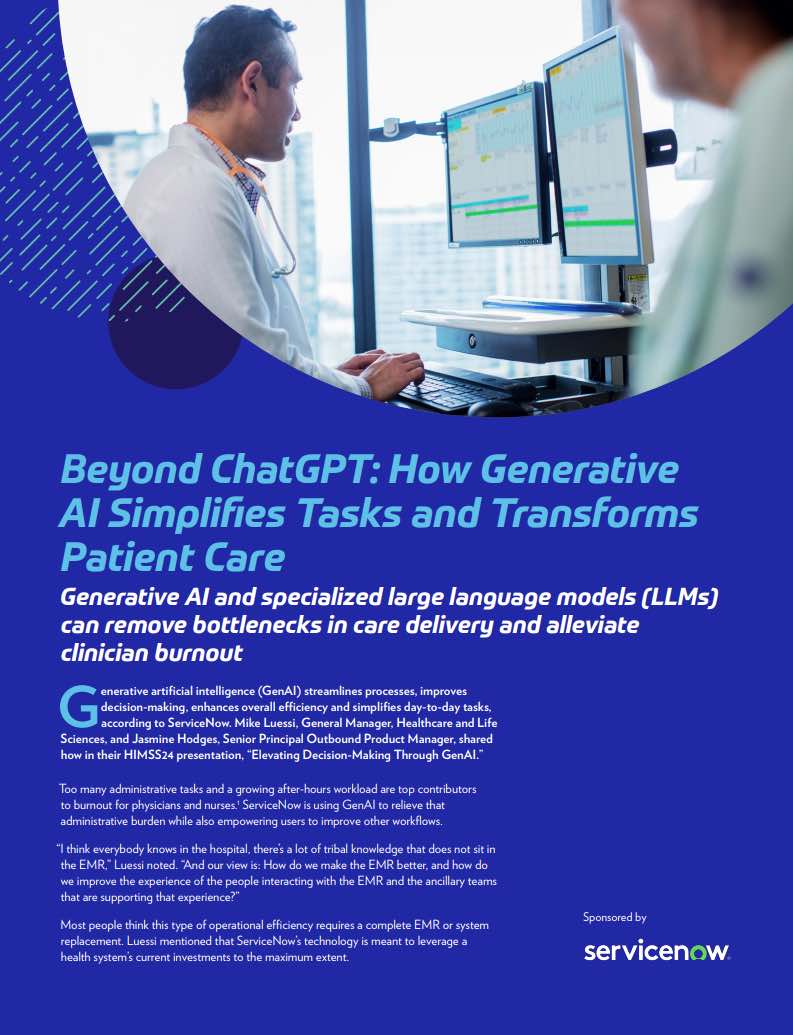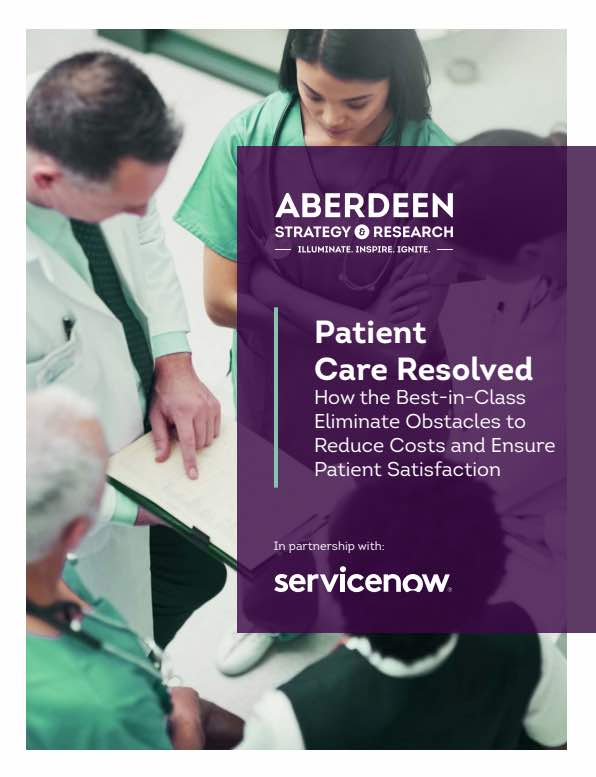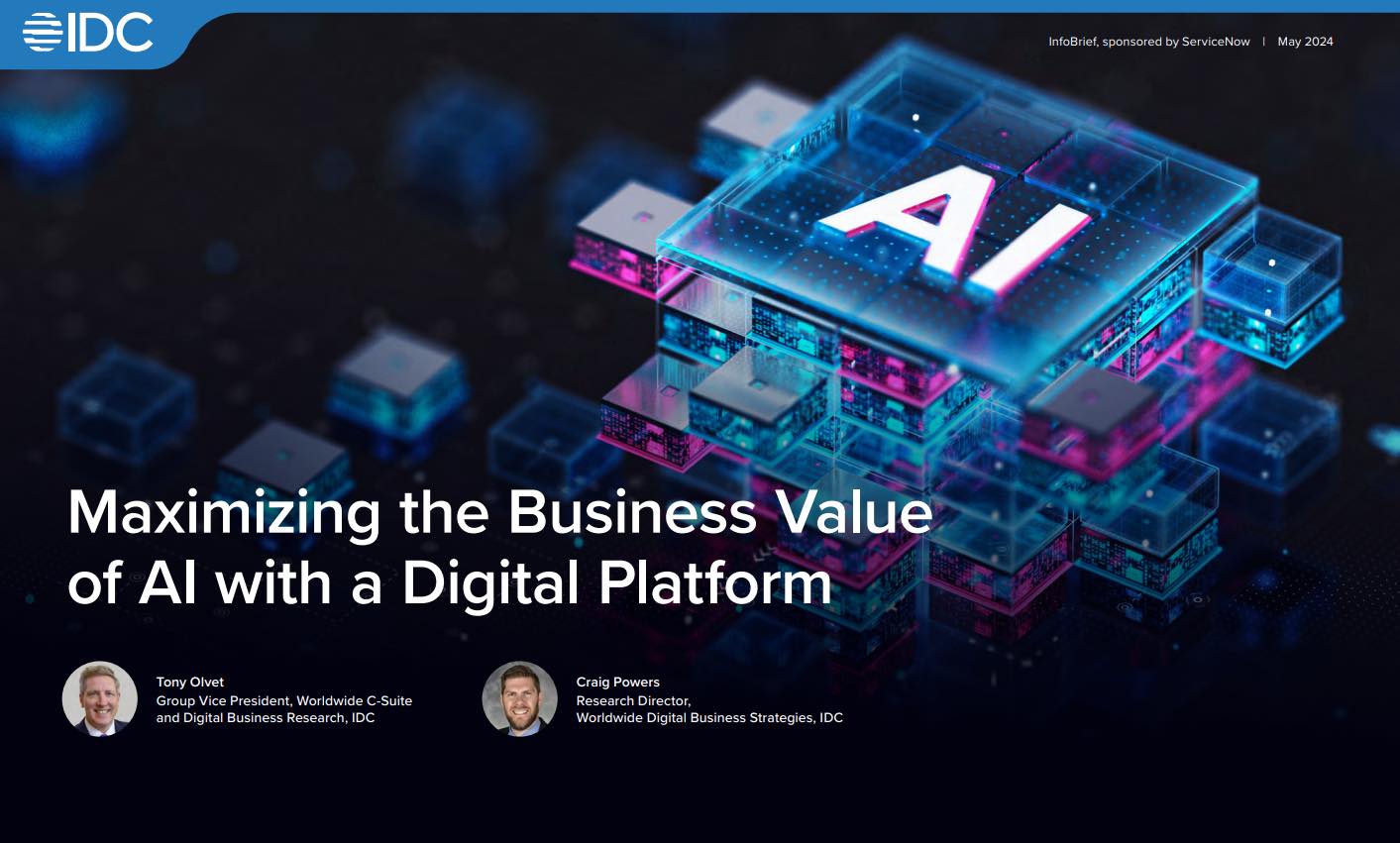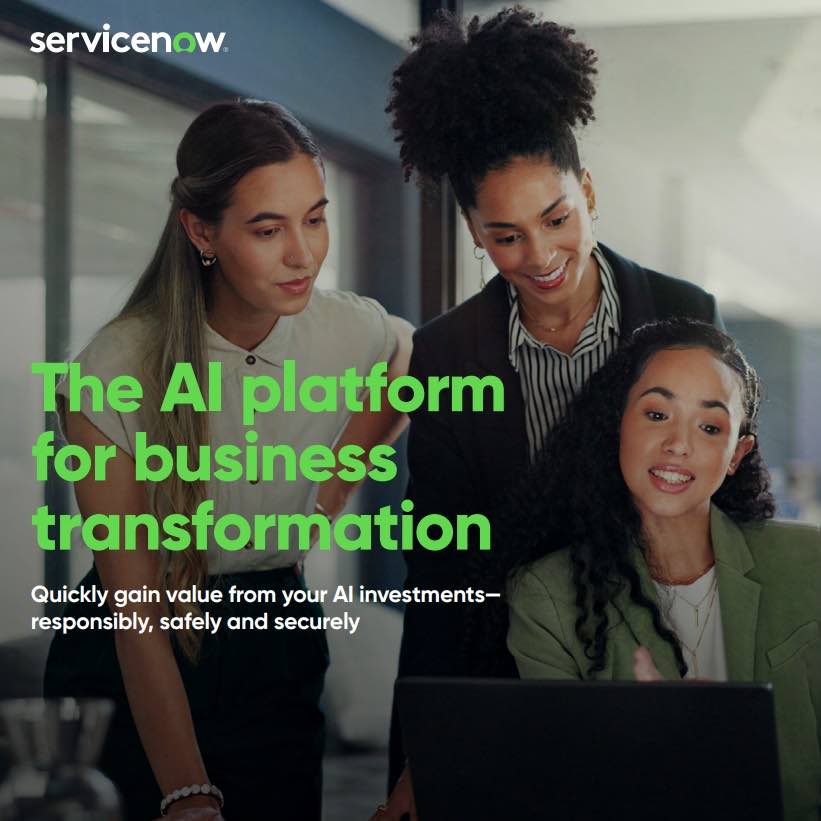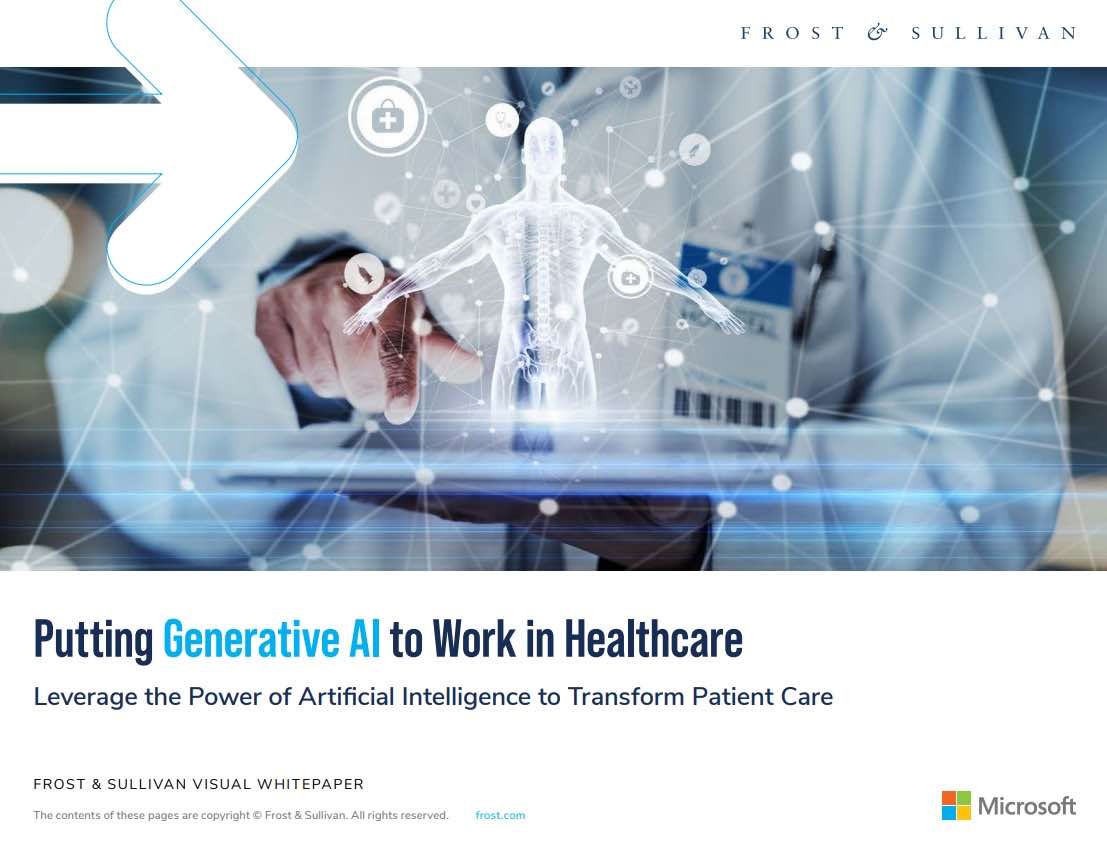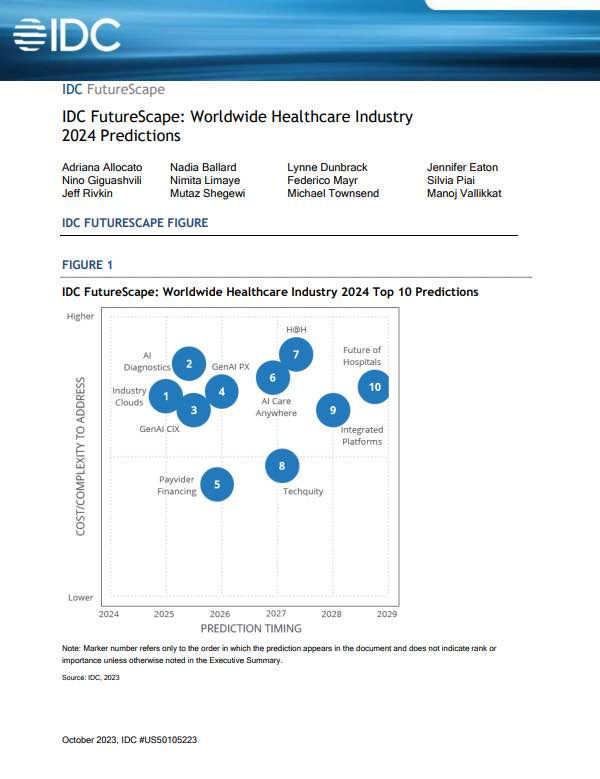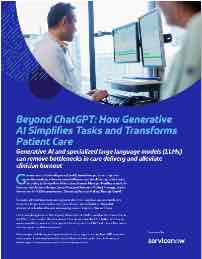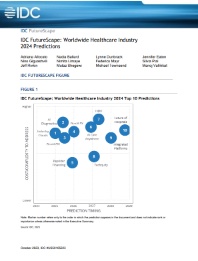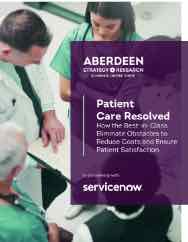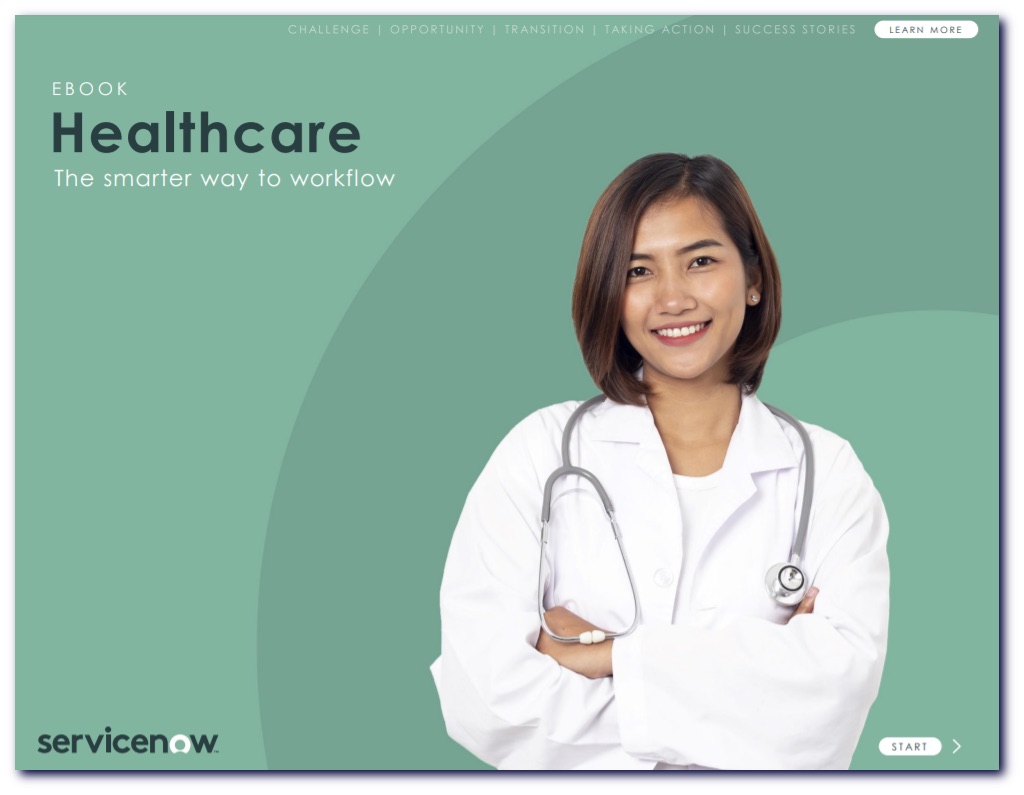
ServiceNow

SPONSORED
According to research by the American Hospital Association, growing after-hours workloads and administrative tasks are leading contributors to clinician burnout.
SPONSORED
Healthcare organizations (HCOs) continue to face challenges in hiring and staffing retention, compounded by patients’ shifting expectations. Best-in-Class HCOs with “next-gen” patient care programs that deliver excellent clinical results and patient experiences through deploying artificial intelligence (AI) and automation are seeing significant performance success.
SPONSORED
Executive leaders increasingly see AI as a digital technology investment that provides significant competitive advantages. However, an enterprise-wide digital platform approach is needed for AI tools to bring gains in productivity, experience and revenue.
SPONSORED
Many organizations are operating on a fractured technology platform of hundreds, or even thousands, of solutions and apps that are neither connected nor integrated, resulting in siloed data, inefficient processes and costly technical debt.
SPONSORED
Generative artificial intelligence (AI) tools that analyze large quantities of data and use natural language processing (NLP) algorithms to answer queries with relevant, accurate information can help healthcare organizations streamline hospital operations, reduce costs and increase efficiencies.
SPONSORED
These predictions for 2024’s healthcare industry landscape reflect the increasing drive to automate and deploy AI applications to reduce costs and improve patient care quality.
SPONSORED
According to research by the American Hospital Association, growing after-hours workloads and administrative tasks are leading contributors to clinician burnout. ServiceNow's generative artificial intelligence (GenAI) streamlines workflows to help healthcare organizations (HCOs) address these concerns and leverage their existing EMR systems to improve experiences for patients and staff. This ServiceNow article presents the highlights of ServiceNow's HIMSS24 presentation, “Elevating Decision-Making Through GenAI.”
SPONSORED
IDC Health Insights conducted a study to provide global healthcare executives with actionable insights and analysis for possible responses to future healthcare industry scenarios. These predictions for 2024’s healthcare industry landscape reflect the increasing drive to automate and deploy AI applications to reduce costs and improve patient care quality. The study also found a growing emphasis on sustainability and governance to help healthcare organizations build resilient infrastructure that can adapt to evolving challenges.
SPONSORED
Healthcare organizations (HCOs) continue to face challenges in hiring and staffing retention, compounded by patients’ shifting expectations. Best-in-Class HCOs with “next-gen” patient care programs that deliver excellent clinical results and patient experiences through deploying artificial intelligence (AI) and automation are seeing significant performance success. This eBook explains how Aberdeen’s research identified these Best-in-Class HCOs, as well as defining the technologies these organizations are using to help them proactively meet patient needs throughout the care journey.
SPONSORED
As healthcare organizations and life science companies navigate through the challenges presented by forces reshaping the healthcare landscape such as rising costs, an aging population and a skilled worker shortage, making investments in new technology and systems is an important step. Digitization and automation enable organizations to drive change and engage with customers while making use of data to improve health outcomes and staff satisfaction. ServiceNow solutions are helping companies worldwide to meet the challenges of digital transformation and deliver cost-effective, efficient healthcare.
